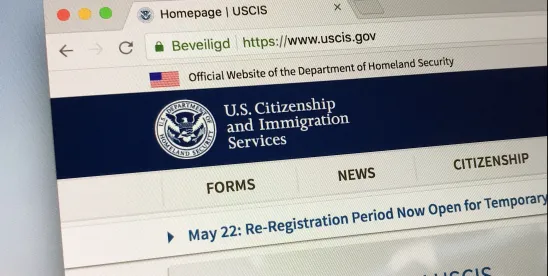USCIS Updates Policy Manual to Strengthen Immigration Review Process

On August 19, 2025, the U.S. Citizenship and Immigration Services (USCIS) implemented significant updates to its policy manual, outlining how officers should exercise discretion during the review of immigration benefit requests. This revision emphasizes a comprehensive evaluation of each applicant’s immigration history, weighing both positive and negative factors before deciding on the approval of immigration benefits.
The newly revised guidance introduces stricter criteria, particularly concerning applicants’ affiliations with groups that may pose a national security risk. Notably, the policy highlights various factors, including any involvement with anti-American organizations, past parole requests, and activities related to antisemitism.
Key Discretionary Factors in Immigration Review
The updated policy delineates several critical areas where negative discretionary factors will be heavily weighted. Most notably, USCIS will assign “overwhelmingly” negative consideration to any past conduct that supports terrorist organizations or promotes anti-American ideologies.
Social media vetting has also expanded, with USCIS officers now tasked with reviewing applicants’ online activities for any signs of anti-American sentiment. Support or endorsement of such ideologies will significantly influence the outcome of immigration benefit requests.
Furthermore, the policy specifies that any association with terrorist or antisemitic groups will result in a substantial negative impact on an applicant’s eligibility. This includes direct involvement or support for organizations linked to antisemitic terrorism or related ideologies.
Guidelines for EB-5 Investor Petitions
The updated guidance also addresses the adjudication of EB-5 investor petitions, particularly in cases where national interests are threatened or where there are concerns regarding fraud, deceit, or misrepresentation. USCIS emphasizes the need for thorough scrutiny in both standalone and regional center investor petitions.
In evaluating EB-5 applications, officers will consider factors such as the applicant’s past parole history, determining whether previous requests were made in good faith and in compliance with laws and policies that were in effect at the time.
The new guidance is effective immediately and applies to all pending cases or those filed on or after August 19, 2025, superseding any earlier related guidance. For more comprehensive details, USCIS encourages applicants and stakeholders to consult the official policy alert.
This update reflects USCIS’s commitment to enhancing national security and ensuring that immigration benefits are granted only to individuals who meet specific criteria, thereby reinforcing the integrity of the immigration system.






